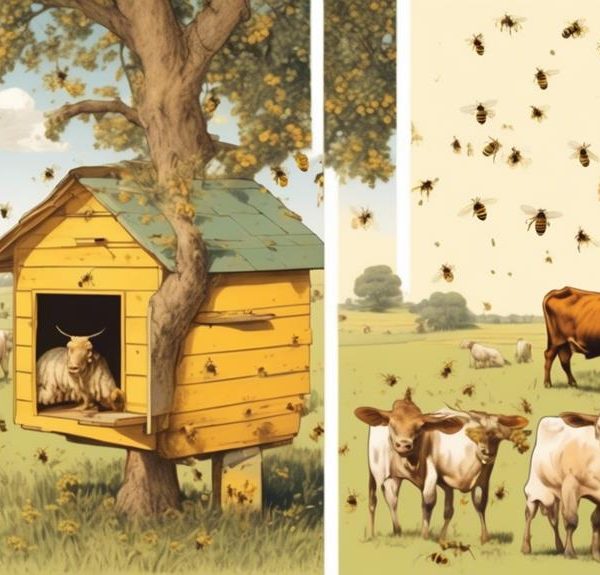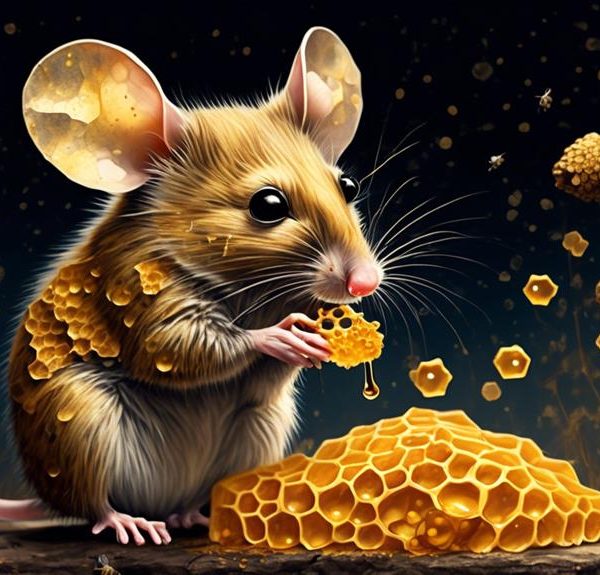Learn about the intricate world of honey bee conservation in Texas, and discover the challenges these essential creatures face in this diverse landscape.
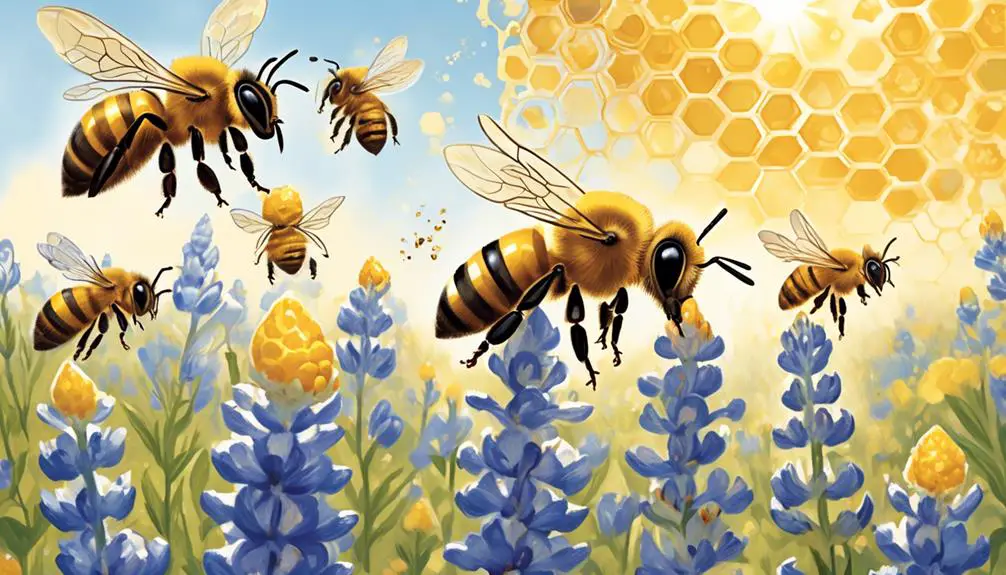
Are Honey Bees Protected in Texas
Navigating the world of honey bee conservation is a lot like weaving through a buzzing hive; there's a lot going on and it's not always easy to understand. You've probably heard how crucial these tiny creatures are to our ecosystem, and perhaps you're curious about how they are faring in the Lone Star State.
Texas, with its diverse landscapes and climates, offers a unique environment for honey bees, but how protected are they, really? Laws and conservation efforts vary widely, and certain challenges could threaten their survival.
Stick with us to unpack the complexities of this topic, and you might just find yourself buzzing with newfound knowledge.
Key Takeaways
- Honey bees play a crucial role in pollinating crops and supporting biodiversity in Texas.
- Texas has laws and regulations in place to protect honey bees, including restrictions on killing bees and hive registration requirements.
- Conservation efforts in Texas focus on educating communities, planting bee-friendly flora, and incorporating bee conservation into school curriculums.
- Despite facing challenges like diseases, pesticides, and habitat loss, Texas is actively investing in research and initiatives to protect honey bee populations for a sustainable future.
Understanding the Importance of Honey Bees
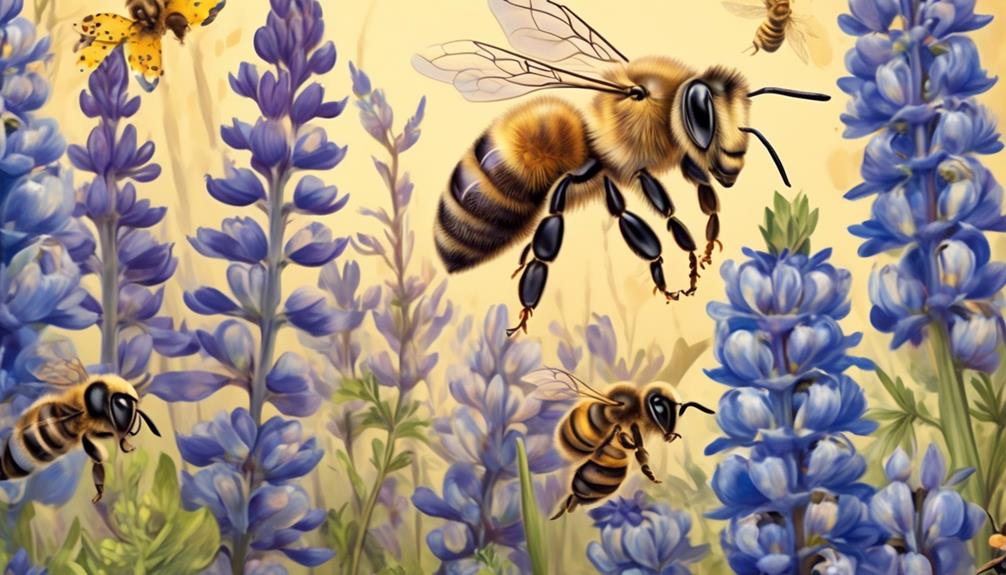
To truly grasp the significance of honey bee protection in Texas, you need to understand the vital role these industrious insects play in our ecosystem and agriculture. They're the unsung heroes, tirelessly toiling away, pollinating a staggering 70% of the world's plants, including many of our food crops. In Texas alone, honey bees contribute to the health and productivity of crops such as peaches, watermelons, and blueberries. Without them, our tables would be far less colorful, and our diets less nutritious.
But that's not all. Honey bees also support the health of our natural landscapes. Their pollination efforts help wild plants reproduce, creating food and habitat for countless other creatures. Without honey bees, our prairies, forests, and deserts would suffer, and biodiversity would plummet.
Texas Laws Regarding Honey Bees
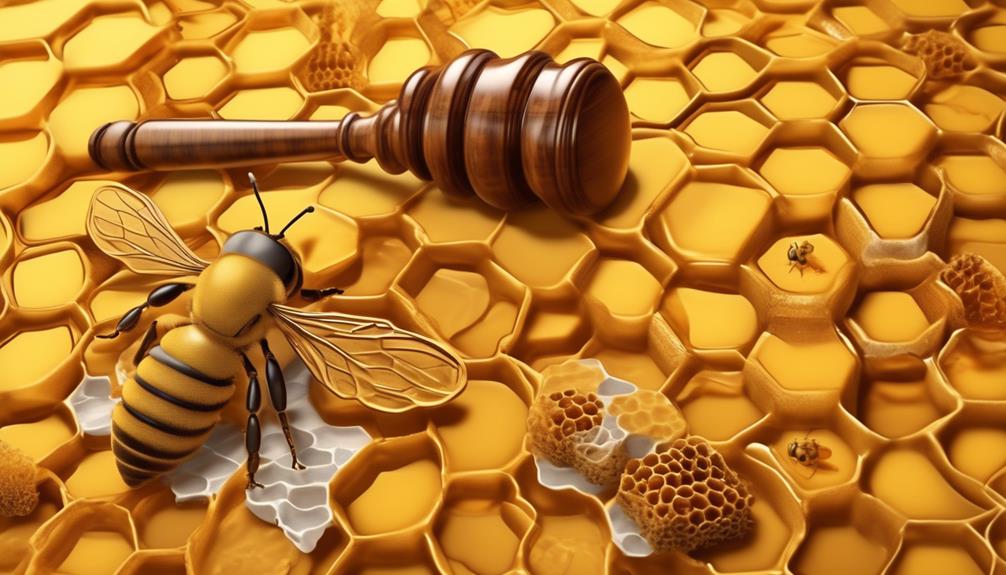
Understanding honey bee protection in Texas means delving into the state's specific laws, which have been carefully crafted to safeguard these essential pollinators and the critical role they play in our ecosystems.
Texas law recognizes the importance of honey bees. The Texas Apiary Inspection Service (TAIS) is responsible for the regulation and protection of the state's beekeeping industry. They ensure that bee diseases, pests, and other threats are managed effectively. In fact, it's illegal to kill bees in Texas unless they pose a direct threat to you or your property.
Furthermore, under Texas law, you're required to register your beehives with the TAIS if you own more than 25 colonies. This helps the state keep track of its vital bee population and ensure their health and well-being.
Moreover, the Texas Agriculture Code protects habitats crucial for bees. It prohibits the destruction of these habitats without proper notification and mitigation measures.
Current Bee Conservation Efforts
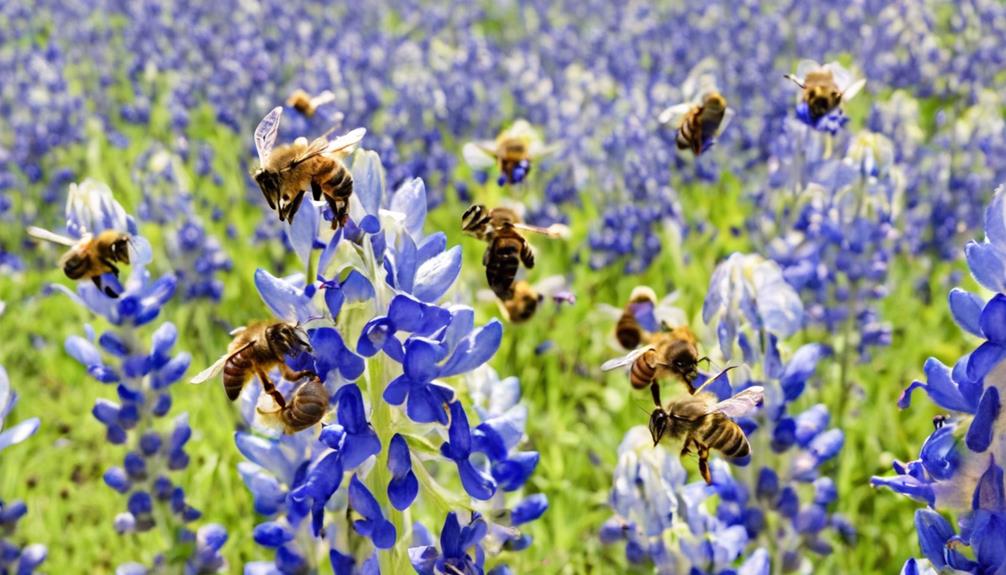
Diving headfirst into bee conservation efforts, you can't overlook the significant strides Texas has made to bolster its buzzing population. The Lone Star State has set up various programs and initiatives that you must be aware of.
Bee Conservation Initiatives | Impact |
|---|---|
Texas Beekeeper Association | Has tirelessly worked to educate local communities about the importance of bees and has introduced measures to protect their habitats. |
The Honeybee Conservancy | This national non-profit has Texas-based operations that focus on planting bee-friendly flora, thereby providing nourishment for these vital pollinators. |
Local School Programs | Schools across Texas have begun to incorporate bee conservation into their curriculum, inspiring a new generation of bee protectors. |
These efforts aren't just about saving bees; they're about recognizing the pivotal role that these tiny creatures play in our ecosystem. Every flower they touch, every crop they pollinate, they're ensuring our survival too. In Texas, you're part of a state that isn't just talking about change, but actively making it happen. You're in a place that's investing in bees, and therefore, in our future. You're part of the solution, and that's something to feel proud of.
Challenges Facing Honey Bee Protection
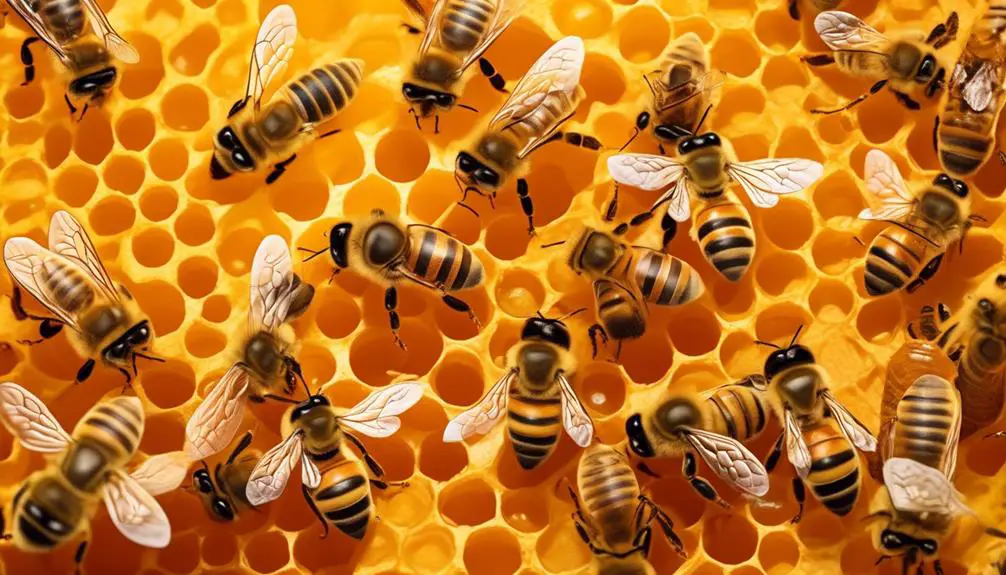
Despite the commendable efforts by Texas to protect its honey bees, there are still significant challenges that threaten these essential pollinators. Honey bees are vulnerable to a myriad of threats, including diseases, parasites, pesticide exposure, and habitat loss. Pests like the Varroa mite can wreak havoc on a bee colony in no time, while diseases such as American foulbrood can decimate bee populations at an alarming rate.
Pesticides, often used without discretion, are another major concern. You might think you're just protecting your tomatoes from pesky bugs, but you're unknowingly contributing to a much larger problem. These chemicals can interfere with a bee's ability to forage, navigate, and reproduce, leading to a decline in colonies.
Moreover, rapid urbanization and agricultural intensification are eating into the natural habitats of these bees, leaving them with fewer places to forage for food. The scarcity of diverse pollen and nectar sources impacts their nutrition, which in turn, affects their health and survival.
In short, while Texas is certainly doing its part, the road to ensuring the survival and prosperity of honey bees is fraught with challenges. It's a fight we can't afford to lose, for the sake of our food security and biodiversity.
Future Prospects for Texas Honey Bees
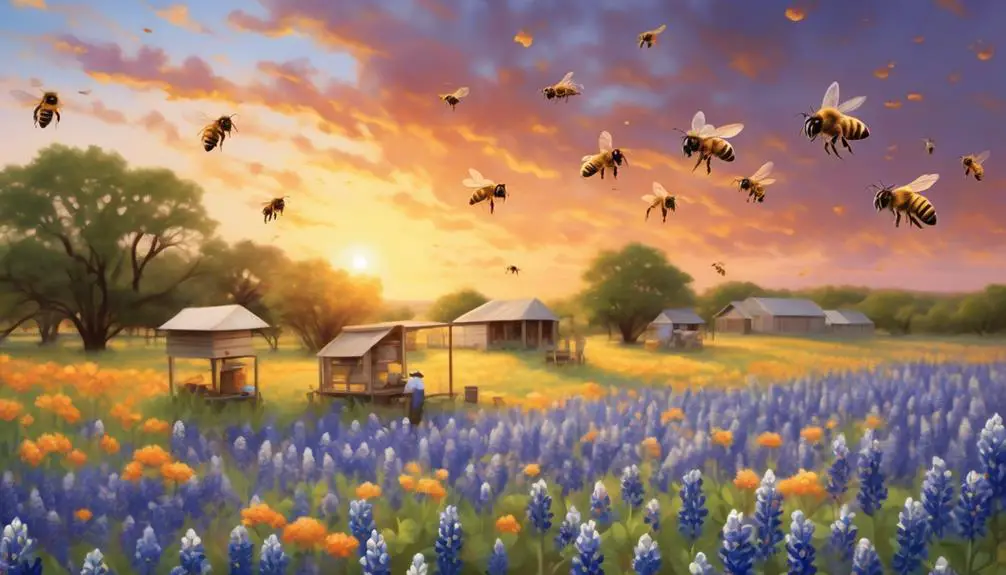
Looking towards the horizon, there's a glimmer of hope for the honey bees of Texas, as various initiatives and strategies are being put in place to combat the challenges they face. The state is buzzing with efforts aimed at protecting these industrious insects, and you can be a part of it too.
Firstly, Texas A&M's Honey Bee Lab is conducting groundbreaking research to address issues like Colony Collapse Disorder and Varroa mites. They're also breeding queen bees that are more resistant to diseases and parasites. You can support their work by donating or participating in their citizen science projects.
Secondly, organizations like the Texas Beekeepers Association are offering educational programs to help both commercial and backyard beekeepers adopt bee-friendly practices. They're teaching you how to manage bees sustainably, use fewer chemicals, and create habitats that support bee health.
Lastly, local communities are stepping up too. They're planting native wildflowers and reducing pesticide use in public areas, making the environment safer for bees.
Conclusion
You've seen the pivotal role honey bees play in our ecosystem, and the laws in place to protect them in Texas.
Yet, they still face numerous challenges.
Thankfully, current conservation efforts are striving to secure their future.
Remember, every Texan can make a difference in this fight.
Let's continue to cherish and protect these irreplaceable pollinators for the bright future of Texas' flora, fauna, and our own food supply.

